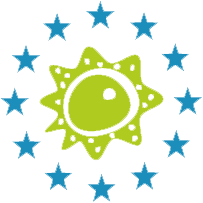Eurosurveillance seminar: Vaccines and tomorrow's opportunities for public health
Vaccines are among the most important achievements in medicine and public health. They have saved an estimated 154 million lives worldwide over the past 50 years, and are considered a highly cost-effective public health intervention. There are now vaccines available to prevent over 30 life-threatening diseases and infections, or prevent severe forms of disease including measles, polio, influenza and COVID-19.
Tying in with Eurosurveillance's annual theme for 2025, Vaccine-preventable diseases in humans — today's challenges and tomorrow's opportunities, the 2025 scientific seminar focuses on how vaccines can build on their success and play a key role in addressing critical public health issues.
Three experts in their fields will highlight the underrecognised role of vaccines in reducing antimicrobial resistance as well as focus on new vaccine developments addressing vector-borne diseases such as dengue and chikungunya, which have become more widespread globally in the 21st century. Dengue and chikungunya virus disease feature on the World Health Organization’s list of neglected tropical diseases, with global warming accelerating the spread of their mosquito vectors Aedes albopictus and Aedes aegypti in Europe and outbreaks recently and repeatedly occurring in Italy, France, and Spain.
Date and time
20 November 2025 14:00-15:30
Preliminary agenda
14:00-14:05 Opening of the seminar, Ines Steffens, Editor-in-chief, Eurosurveillance, ECDC, Sweden
14:05-14:10 Welcome note, Susana Monge, Instituto de Salud Carlos III, Madrid, Spain
14:10-14:35 'The role of vaccines in reducing antimicrobial resistance and use' Mateusz Hasso-Agopsowicz, World Health Organization, Geneva, Switzerland
14:35-15:00 'How basic research informed the development of the chikungunya virus vaccine' Gerald McInerney, Karolinska Institute, Solna, Sweden
15:00-15:25 'Dengue: strategies for prevention and control' Fernanda Boulos, Instituto Butantan, São Paulo, Brazil
15:25-15:30 Wrap up and close
Moderator
Susana Monge
Susana Monge is a medical doctor specialised in public health and an EPIET alumna, with 15 years of experience in epidemiological research in infectious diseases. Since 2021 she is a tenured scientist at the Instituto de Salud Carlos III, where one of her main research interests is on the effectiveness of vaccines and immunisations with real-world data, mainly, but not limited to, respiratory viruses (SARS-CoV-2, influenza and RSV). Since 2024 she is also lead epidemiologist for the National surveillance system of acute respiratory infections in Spain and is part of the Spanish Immunization Technical Advisory Group.
Speakers
Fernanda Boulos
Fernanda Boulos has 15+ years of experience in clinical development, across different therapeutic areas in global companies. Since 2022, she is Chief Medical Officer at Instituto Butantan, a public laboratory in Brazil, that has been leading development programmes to address medical unmet needs in Brazil, including studies in arboviruses, such as dengue and Chikungunya, and Influenza. In the past areas, she led the clinical program for Butantan-DV, a single dose Dengue vaccine, under regulatory review for approval. Fernanda also led Chikungunya vaccine development in Brazil, the first study for that product to be held in an endemic area.
Mateusz Hasso-Agopsowic
Dr Mateusz Hasso-Agopsowicz is a Technical Officer in the Department of Immunization, Vaccines and Biologicals (IVB) at the World Health Organization (WHO). He holds a PhD in Vaccine Immunology from the London School of Hygiene and Tropical Medicine (LSHTM). At WHO he leads programmes on vaccines and antimicrobial resistance (AMR), as well as on the development and introduction of novel vaccine technologies. His work focuses on advancing evidence-based policy, supporting the development of priority vaccines, and evaluating the role of immunization in combating AMR globally.
Gerald McInerney
Gerald McInerney is currently Professor of Molecular Virology at Karolinska Institute, Stockholm, Sweden, and has studied the biology of alphaviruses, including chikungunya virus since 2000. His research is aimed at an understanding of the interplay between viral and host macromolecules in the early stages of infection, and their consequences for the outcomes of infection and the strength of the immune response. Such knowledge is important for the development of vaccines, such as the chikungunya virus vaccine (Ixchiq). In addition, his group are working with the development of the alphavirus-based self-amplifying mRNA vaccine platform with the vision that their molecular virology research can inform the development of more effective and safer next generation saRNA vaccines.

